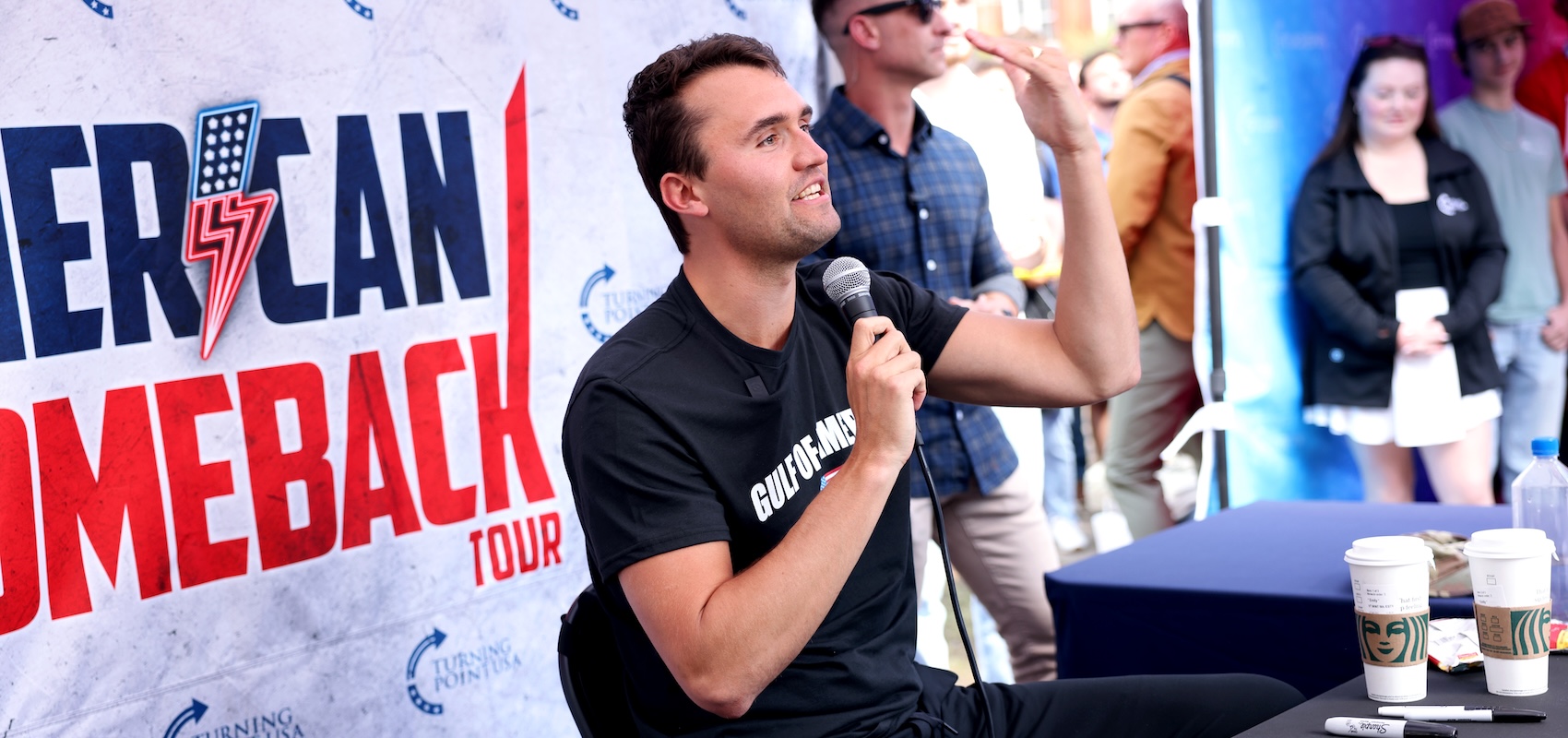
I met Charlie Kirk once at a Turning Point event I helped organize, which brought him and Eric Trump to speak at Georgetown University in February 2020. It turned out to be just weeks before the coronavirus pandemic shut the country down, and Georgetown students were sent home for what extended to more than a year of online school.
Backstage, Eric and Charlie were consummate gentlemen who asked us how the campus climate was. Charlie even recorded a personal video for one of the student organizers of the event who could not attend due to a work commitment. On stage, the politicos talked about the Trump agenda, tossed MAGA hats, and cheerfully took hostile questions from students. Eric recently posted video and pictures from the event on X, and summarized his memory of it on Sean Hannity’s show: “I went to Georgetown, my alma mater, with him, which is [an] incredibly liberal campus, as you know better than anybody. And you know, I mean, we sat there and we had the greatest conversation with kids on both sides of the spectrum, and it’s just amazing.”
These past few weeks, I started listening to Charlie more regularly, spurred by seeing his masterful articulation of the economic and social challenges young people in America face. One can’t talk about Charlie without discussing his profound Christian witness, something that appeared to have grown stronger in recent years. He openly urged young men to give their hearts to Christ through his massive public platform: an incredible gift to the world.
As a practicing evangelical Christian, Charlie also represented Protestant America to the rest of us. While a plurality of Americans still identify as Protestant, observers have recognized that they appear to be underrepresented in some areas of the conservative movement in America. Charlie was a notable exception to that rule, and he actively discussed Christian principles and theology with notable atheist Bill Maher and the Catholic Michael Knowles.
One of Charlie’s recent contributions to religion in public life was his interview with Steve Deace at Dream City Church. Steve spoke of his conversion to Christ, and paired it with a guide to joining a strong church. Steve and Charlie modeled the kind of public exchange we need to be having about young men, who are falling behind their fathers and grandfathers—in academic achievement as well as in reaching important life milestones like marriage.
The rise of extraordinarily popular Christian influencers has to be taken as a direct response to the dearth of resonant church content in our culture. Charlie—as a successful businessman, husband, and father who didn’t leave his faith at the door of his workplace—filled the void as a relatable role model for many young men. People with as diverse political views as President Donald Trump, Gov. Gavin Newsom, and fitness personality Jillian Michaels have all attested to what he meant to their sons.
Charlie of course famously engaged with a variety of people hostile to his Christian worldview. In a clip that has now widely circulated, Charlie was able to conjure a copious amount of evidence for the Christian origins of the nation when challenged about whether the United States was really founded as a Christian country. In the video, he rapidly cites the individual state constitutions’ Christian profession of faith requirements, the personal Christian faith of the signers of the Declaration of Independence, and the Christian roots of common law.
At the same time, Charlie was also an important voice for combating anti-Semitism in public. A few months ago, I interviewed Eric Fingerhut, the president and CEO of the Jewish Federations of North America, about the growing security threats Jews are facing in the United States. Ascendant anti-Semitism is still the canary in the coal mine for broader societal violence and destruction.
In my view, Charlie is irreplaceable given his role as a personal advisor to the president, his prowess at fundraising and outreach, and his prominent public persona—which even earned him a satirical cameo on one of the country’s few remaining common cultural landmarks: South Park. It is not an exaggeration to say he is now a martyr for the cause of civil discourse and for the conservative principles he so eloquently defended. Given the many young people he captivated with his message—and the many more who, following his death, will turn to his body of work perhaps for the first time—his legacy will undoubtedly live on.
I sincerely hope that in the wake of his murder, people will follow Charlie’s example and words by focusing on the things that matter: our relationship with God rather than the ephemeral things of this world, and our devotion to our family and friends. As Charlie reminded us, it’s not too late to turn back to God.
Image by Gage Skidmore, licensed via Creative Commons. Image cropped.
The Church’s Answer to the World (ft. Carter Griffin)
In the latest installment of the ongoing interview series with contributing editor Mark Bauerlein, Fr. Carter Griffin…
An Important Civics Lesson, Well Taught
The permanent exhibit in the rotunda of the National Archives in Washington, D.C., includes original copies of…
Voyages to the End of the World
Francis Bacon dreamed of abolishing disease, natural disasters, and chance itself. He also dreamed of abolishing God.
